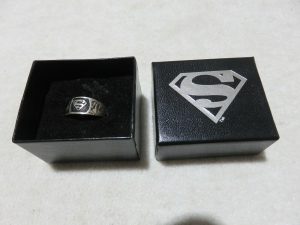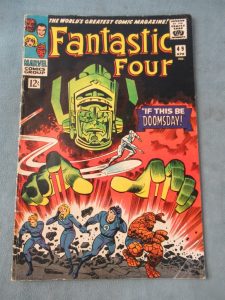Welcome back to Hammer Drops! Every Wednesday, Back to the Past Collectibles shares its wealth of collectibles-sales experiences with dedicated do-it-yourself sellers. This week is no different. In the internet age, there are a variety of venues and methods available to you for selling your collectibles. We’ll be sharing with you our criteria for deciding where an item is best listed for sale.
In A Fixed Price Sale
The first and most common way to sell collectibles is at a fixed price. You figure out what you have, you do some research as to what it sells for (we use a paid service called WorthPoint but eBay’s “Sold Listings” do in a pinch), and you list the item. If you set the price too high, it won’t sell and you can always choose to lower it. If you set the price too low…well, it can be hard to tell. Something that you priced perfectly and is hot commodity will sell just as fast as something you priced too low.
Examples of places you can try this approach include in-person sales (a store, an antique mall, etc) as well as online venues like Etsy, Facebook Marketplace, and (of course) eBay. This is best for items that won’t fluctuate quickly in value. Vintage toys, antiques,and older items in general are perfect for this. When it comes to brand new, rare items, the market can be very volatile and a new production run can tank the secondary market value in a big way. While interest may wax and wane, nobody can make a new run of genuine old school Star Wars toys or Victorian pickle castors. Values will, naturally, change over time but it won’t be subject to the same volatility as new items. You’re less likely to set a price unreasonably high or stupidly low.
At An Auction
This method is a little harder for the average person with a few items to achieve, but it is still available via services like eBay and Popshop Live. Services like our chosen partner, ProxiBid, only deal with larger volume and established auctioneers. Auctions are good for more high-volatility items, like Key Comic Book issues and hot, new, limited edition items.
The reason for this is that those markets can be more volatile. An excellent example of this comes from one of our auctions a couple of years back. We had a couple copies of Savage She-Hulk #1, the first appearance of Bruce Banner’s cousin Jennifer Walters AKA She-Hulk, in a lot together. At that time, it was a well-known key issue but its late Bronze Age origins and mainstream obscurity meant it wasn’t a majorly notable book value wise.
Then Marvel Studios announced a She-Hulk DIsney+ TV series. Over night, Savage She-Hulk #1 became a highly sought-after, ultra key book. It’s still more common than an Incredible Hulk #1 from 1962 and therefore won’t ever attain those same heights of value, but the change was stark. We know that because pre-bidding was open on the auction that lot was in, with the closing date falling several days after the announcement. We got to watch in real time as bidders heard the news, sought out the issue, discovered our lot, and began fighting over it.
That’s the benefit of the auction: the buyers set the price and whoever is willing to spend the most wins. This allows volatile items to find their level, and additionally helps with bulk clearance. You cannot overcharge for an item at auction because you aren’t the one setting the price. There is always the chance that an item goes for too little, but in our experience when you have all the right eyeballs on a sale, the market will deliver a fair price at a minimum.

An official Critical Role Grog dice set from the Vox Machina dice collection, currently available on Popshop Live.
Via Livestream Sales AKA Liveselling
This, right here, is the cutting edge of selling, fueling hundreds of billions of dollars worth sales in China already. It’s like Twitch or YouTube had a baby with QVC. It requires a certain amount of personality to pull off, but most sellers tend to be smaller enterprises. Our chosen partner, Popshop Live!, even handles some parts of shipping logistics for you. This is the new frontier, even for an established outfit like ours.
Which isn’t to say that we haven’t noticed some patterns. In all, Livestream sales in the U.S. seem best suited to smaller items with pop culture buzz. This includes stuff like enamel pins, trading card games, gashapon and candy toys, blind bag collectibles, and even stuff like original art prints/t-shirts. Looking over Popshop, we’re reminded of the artist alleys and dealer rooms of anime cons in terms of what you can find.
As we said, this method requires the most from the seller. You are part of the product, selling your personality as much as your wares. That’s a specific drawback to this method, but not an insurmountable one.
There are, however, some universal drawbacks that apply to every method we’ve talked about.
Drawbacks to Selling Things Yourself
The drawback to selling your own collection is that it’s all on you. You’re the store! Do you know how to: Identify all your goods, describe everything to a collector’s satisfaction, provide pictures, keep orders straight, properly pack an easily-broken statue to survive the tender ministrations of major parcel services, then inevitably deal with that dude in Florida who wants to return it? You need to. If you don’t, you are going to hear about it.
Providing full satisfaction to buyers is an obligation, and you can still get your virtual name dragged through the mud with a negative review afterwards. You reap the financial rewards of being in business for yourself, but you also take the risks. As our very existence proves, this field can be a full time job. Handling it on top of your day job can be rough. What’s your time worth?
Which is why we always encourage folks to work with us, if they have anything else they’d rather be doing. We’re established players in all the fields listed above, with a recognizable name and a loyal audience. We’ve got oodles of testimonials from happy people who worked with us and walked away with more money than they ever dared dream get for their collection.
You will always have higher earning potential selling stuff yourself, but those greater rewards come with more risks and more work. Unless you’re planning to make like us and turning collectibles sales into your career, the peace of mind that comes with not having having to do anything might be worth the money. So if everything we talked about above sounds like a lot of work? Give us a call and make that hard work our problem. Its what we do, and we love doing it. And if that hard work sounds like something you’ll love? Keep reading Hammer Drops to benefit from our experience.










